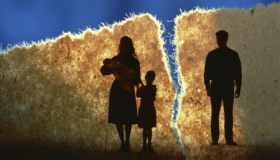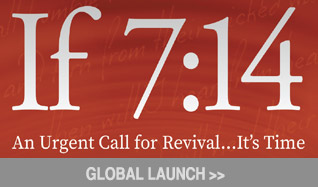Today’s Supreme Court opinion, saying the 14th Amendment “requires a state to license a marriage between two people of the same sex,” is not good for America.
The Court succumbed to demands to invent a new constitutional “right” (to same-sex “marriage”) never imagined by our Founders nor “endowed by our Creator.”
The Court did not so much redefine marriage, as it worked to undefine it altogether, to separate the institution from its anchor in the “Laws of Nature and Nature’s God,” leaving future courts no legal basis for disqualifying any number of relationships from being called a “marriage.”
Furthermore, the Court’s decision was a judicial assault on the separation of powers and the American form of government. At the heart of every American liberty is the freedom for all Americans to democratically address the most pressing social issues of the day.
And yet the Supreme Court overrode the judgment of over 50 million Americans who recently voted to reaffirm natural marriage as the union of a man and a woman. By elevating itself to the sole arbiter of determining policy, the Court is effectively stripping all Americans of our freedom to debate and decide major issues through the democratic process.
Nonetheless, the Supreme Court’s opinion won’t end society’s discussion about the future of marriage and laws affecting the family.
When the Supreme Court handed down the Dred Scott decision, for example, it didn’t end the debate about slavery, but only intensified it. Roe v. Wade didn’t end the debate over abortion, for we’re still working through it today. Likewise, Obergefell v. Hodges, doesn’t end the debate, but only stirs it.
In fact, Obergefell v. Hodges throws a blazing spotlight on three issues, which will become major focuses, not only during this election cycle, but for years to come:
The definition of marriage
First and most obviously, how we as a culture define marriage is suddenly up for debate. On what grounds, for example, can polygamy now be excluded from the legal definition of “marriage”?
The FAMiLY LEADER will remain committed to holding up the gold standard of God’s design for the family, affirming the right of every child to be raised by both mother and father, and promoting a view of marriage that prioritizes children’s needs over adults’ desires. We believe neither Court nor public opinion can change the truth that the union of a man and a woman is the only objective definition of marriage that produces human flourishing.
Religious liberty
Second, calling same-sex “marriage” a legal “right” starkly contrasts with those who believe it’s a moral wrong.
As we’ve already seen in places where same-sex “marriages” are performed, men and women of faith who have attempted to live out their convictions have been met with derision, fines, lawsuits, the force of government, and the loss of their livelihood.
The FAMiLY LEADER believes Americans should be free to live and work according to their faith without fear of being unjustly punished by their government. Religious liberty must be defended. A government with unchecked power to intrude on any citizen’s freedom is a threat to everyone’s freedom.
The role of the courts
Third, Obergefell v. Hodges raises the question of the proper role of the courts. Is America still a land of representative democracy and the rule of law, or is it governed by an oligarchy of unelected officials in black robes?
Even during oral arguments of the case, Justice Antonin Scalia noted the underlying question: “The issue, of course, is not whether there should be same-sex marriage, but who should decide the point. … And you’re asking us to decide it for this society.”
Justice Anthony Kennedy further recognized the gravity of the power the Court was asked to wield: “This definition [of marriage] has been with us for millennia. … And it’s very difficult for the Court to say, ‘Oh, well, we … we know better.'”
Whether the Court should have the authority to make such decisions for society and to decide it does “know better” in such monumental matters – and how the other branches of government and “We the People” should respond when the Court oversteps its authority – will be a critical debate in America in the coming years.
Ideally, the Court should only serve as a check and balance if the other branches or the people clearly violate the Laws of Nature and Nature’s God. In today’s opinion, the court didn’t defend the Law of Nature and Nature’s God; the judges acted as if they are God. Very disturbing for all of America!
Discover ways you can partner with The FAMiLY LEADER by visiting our Action Center today!



